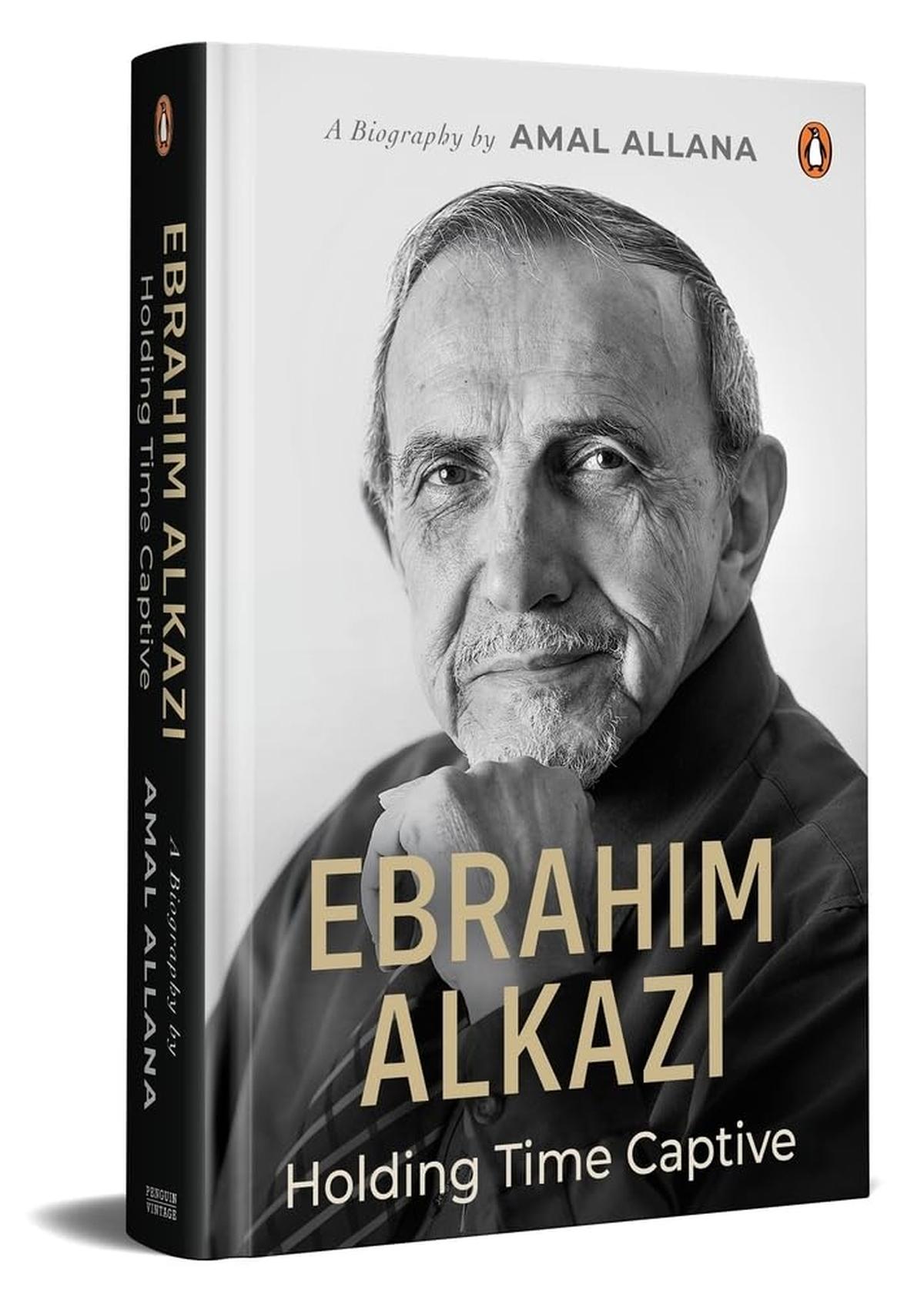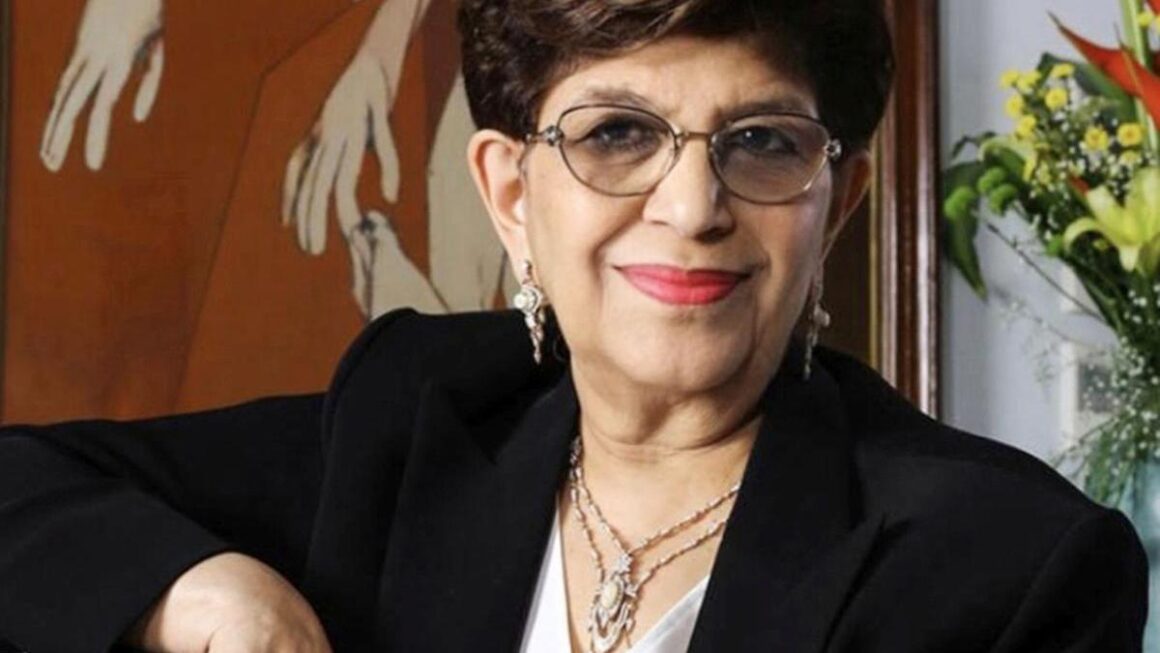As the daughter of legendary theatre personality and visual arts promoter Ebrahim Alkazi, Amal Allana grew up in a culturally-rich environment. “My father had the knack of making everyone his student. This began at home with my mother and us two children, who became his personal students.”
A theatre director with over 60 stage productions and former chairperson of the National School Of Drama (NSD), New Delhi, Amal released her father’s biography Ebrahim Alkazi: Holding Time Captive last year. She will speak about it in her conversation with journalist and author Kaveree Bamzai at The Hindu Lit For Life festival in Chennai on January 19.
Amal says Alkazi believed the entire family should be involved in understanding and making art. She recalls, “He involved us in practically all aspects of his work, from the initial process of selecting a play, to assembling a cast, through rehearsals, to playing bit roles, to making posters, serving tea, ushering audiences to their seats, selling brochures, mounting exhibitions.”

Amal Allana’s biography on her father Ebrahim Alkazi.
She adds that Alkazi explained how the job should be undertaken at each stage, that it be treated as a sacred task, completed in time and done in the spirit of team effort. He believed that “an idea never remained at the level of an intellectual thought, but was materialised in action.”
Amal says she picked up various qualities from her father. She lists them: “To look beyond yourself and work with a spirit of selflessness. To fight for what’s valid. That theatre is teamwork and collaboration. That simple, effective and creative solutions can be found to practising theatre, that one cannot rely on anybody, that you need to be independent and, therefore, equip yourself in all fields.” He would also say work in any field of art is a long haul that needs to be doggedly and consistently pursued.
Alkazi (1925-2020) belonged to a family of Arabic descent. Born and raised in Pune, he shifted to Bombay to study at St Xavier’s College. This is where he met Sultan ‘Bobby’ Padamsee, who ran the English theatre company Theatre Group, and his future wife Roshen, Bobby’s sister. He was later trained at the Royal Academy Of Dramatic Art (RADA) in London, but began to head Theatre Group in Bombay after Bobby’s untimely death. Later, Alkazi formed his own company Theatre Unit, before moving to New Delhi as director of NSD. Though he was involved with theatre most of his career, he was also a keen artist from his London days, later founding the Art Heritage Gallery in New Delhi with Roshen.
Amal’s biography covers Alkazi’s life path in granular detail. She says, “My largest resource other than interviewing Alkazi’s colleagues, friends and our relatives, was my lived experience with him. Everything I wrote is tested against what I personally knew and have observed about him over a lifetime. I have been careful to refer to incidents that are not merely hearsay, but where I was actually present — as a child, teenager, daughter, student and theatre practitioner.”
Besides referring to letters among various family members, Amal used information provided by people who Alkazi worked with, including actors, painters and historians. She also did a lot of reading around the cultural scene of Alkazi’s times.
Amal says quite a few NSD students have written to her in appreciation saying they did not know much about his Pune and London days or about his deep connection with the art world right from the 1940s. Even many artists, she says, were unaware of Alkazi’s own art and his wanting to be a painter in his early days. She adds, “I have rather deliberately constructed my book as a constant intertwining of Alkazi’s personal life and ideas, as related to public issues. The book is not a psychological study of Alkazi’s thoughts and actions, but a sociological look into how he helped fulfil the cultural needs of a new nation.”
At her talk at The Hindu Lit For Life, Amal hopes there will be opportunity to highlight context, as Alkazi’s career spans three different periods — the struggle for freedom in the 1930s and 1940s, the building of the nation during the 1950s and 1960s, and the era from the 1970s to the 1990s, when cracks appeared and the democratic nature of the nation began to fall apart. “All three are formative periods for the development of an identity for theatre and the visual arts. Not only does the subject matter change, but Alkazi’s approach to the nature of his projects also alters in his attempt to keep abreast of changing needs,” she explains.
Amal also hopes to touch upon Alkazi’s cosmopolitan, expansive world view, and his priorities and goals for the future of theatre and the visual arts. “There is much material that can be unpacked,” she says.
Amal’s talk comes at the beginning of Alkazi’s centenary year. She says Ebrahim Alkazi: Holding Time Captive is also being made into an audio book, and she hopes it will be translated into Hindi and Bengali by 2026. That should benefit many more theatre followers and drama students.
The session will be held on January 19, 10.35 a.m. at The Hindu Pavilion.
Published – January 09, 2025 11:58 pm IST


Leave a Reply